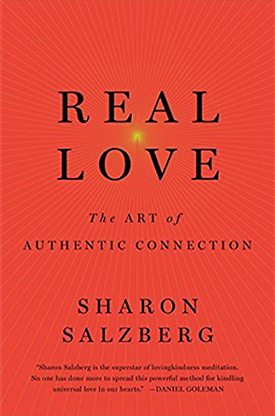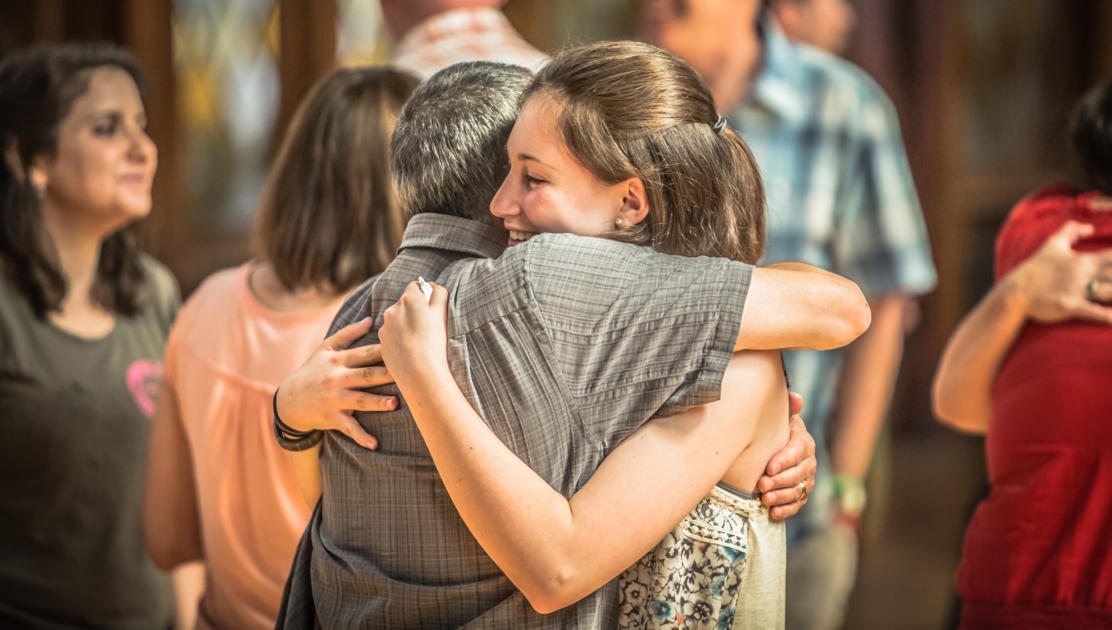Love Everybody
Lovingkindness practice asks us to embrace our shared humanity with all people, but it does not require us to agree with all of their actions.
By Sharon SalzbergA few years ago, I met Myles Horton, who founded what was then called the Highlander Folk School (now known as the Highlander Research and Education Center), a training center for the civil rights movement, whose students included activist Rosa Parks. Myles asked me what I did, and when I told him about teaching lovingkindness meditation, he said, “Oh, Marty”—as in Martin Luther King, Jr.—“used to say to me, ‘You have to love everybody.’ And I would say, ‘No, I don’t. I’m only going to love the people that deserve to be loved.’ And Marty would laugh and say, ‘No, no, no. You have to love everybody.’”
Sometimes when I tell this story, people reply, “Well, look what happened. He got assassinated.” As if this were a case of cause and effect, and King would not have been killed if he hadn’t tried to love everybody. But how do we know that? If Martin Luther King had been hateful, vicious, and small-minded, would he have been safer? Would we be safer? How far would the movement have gotten if he hadn’t insisted on meeting hatred with love?
Neither Myles Horton nor the friends who raise an eyebrow whenever I talk about love for all others is alone in their skepticism. A student once told me that she hates lovingkindness practice because it seems so phony: “It reminds me of a forced Valentine’s Day when we’re actually angry or fearful, but cover over our true emotions with false sentiment.” I explained that true compassion requires honesty and insight. It’s not a matter of feeling sorry for someone or denying our own emotions.
Many other people regard wholesale kindness and love as signs of weakness. They think, If I love indiscriminately, I’ll lose my ardency, my power. Other people will take advantage of me and I’ll be seen as a pushover. Worse, I’ll become a pushover. Why should we send wishes for happiness to those who oppose us, disagree with us, and stand in our way? Hasn’t it been drummed into our heads that we should stand up for ourselves, whatever other people think?
 The answer is yes—because this is what we’ve been taught and conditioned to believe. There are no popular TV shows, movies, or books that depict heroes who respond to villains non-violently; we are taught to think about ethics of good/bad, wrong/right in terms of force, power, and often clear-cut violence. We don’t have many contemporary role models of cultural figures who have been able to come up with peaceful models of opposition, ideological approaches to protest that are backed by powerful forces, other than violence.
The answer is yes—because this is what we’ve been taught and conditioned to believe. There are no popular TV shows, movies, or books that depict heroes who respond to villains non-violently; we are taught to think about ethics of good/bad, wrong/right in terms of force, power, and often clear-cut violence. We don’t have many contemporary role models of cultural figures who have been able to come up with peaceful models of opposition, ideological approaches to protest that are backed by powerful forces, other than violence.
Loving everybody is part of the lovingkindness practice, and certainly something we can think about when it comes to dealing with difficult people in our everyday lives—a cranky boss, a demanding friend, an unfriendly server at a restaurant. But there are also outstanding examples of love for all, people who have found a new vocabulary, approach, and set of behaviors for how to respond to urgent and real instances of violence and threat. Happily, in forty years of practicing and teaching lovingkindness, I’ve discovered that instead of turning us into pushovers who lack clear boundaries, this practice makes us stronger so that we live more in tune with our deepest values. Loving all others asks us to open our hearts and embrace our shared humanity with people we don’t know well (or at all). However, it does not require getting personally involved with everyone we meet. It does not require us to agree with their actions or views—or to confess our love to strangers on the street. It never requires that we sacrifice our principles or cease standing up for what we believe. The primary work is done internally, as we cultivate love and compassion in our own hearts.
I’d also be the first to acknowledge that this work is never done. After the publication of Lovingkindness, people often said to me, “It must be incredible to love everybody all the time!” I had to tell them that although I believe that universal love is possible, I don’t live every day overflowing with love. I remember complaining to a friend about someone we both knew, and she said, “Haven’t you read your own book?” Recognizing when our actions don’t match our aspirations can also be an act of love.
Inspiring figures don’t have to be used as cudgels against our own sense of worth, though we may veer toward that kind of conditioning and need to be sensitive to that tendency. Inspiration points us to a bigger world than the one we may have been inhabiting, where we suddenly can see that human beings can go through so much and still be kind. They can create, or care, or act in a way that belies an ordinary sense of constriction or limitation. They can know love is a power, and work toward being free. We can see a path, a way, and say, “If there is a path, I, too, can walk on it.”
Sharon Salzberg is a central figure in the field of meditation, a world-renowned teacher, and Garrison Institute Board Member. She is the co-founder of the Insight Meditation Society in Barre, MA and the author of many books including, most recently, Real Love, from which this article is excerpted. Reprinted with permission from Flatiron Books. All rights reserved.
Join us on July 6 at the JCC Manhattan in New York City for a conversation about Real Love with Sharon Salzberg and James Shaheen, the editor and publisher of Tricycle: The Buddhist Review.

I’m so happy that Sharon is finding ever new ways of helping us to embrace the practice and art of Lovingkindness. This new book, so needed to help us to compassionately navigate our world today, could not have come at a better time. I am gratefully looking forward to reading it. Thank you, Sharon.